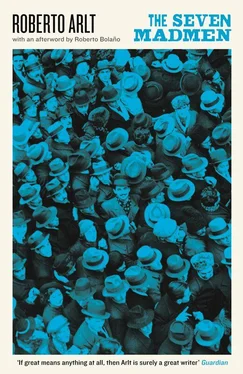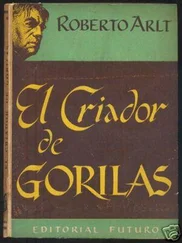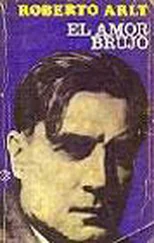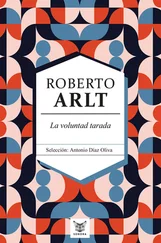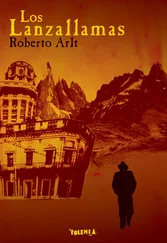Roberto Arlt
The Seven Madmen
ROBERTO ARLT was born in Buenos Aires in 1900. He had a deeply unhappy childhood and was brought up in the city’s crowded tenement houses — the same tenements which feature in The Seven Madmen . As a journalist, Arlt described the rich and vivid life of Buenos Aires. As an inventor, he patented a method to prevent ladders in women’s stockings.
Roberto Arlt died suddenly of a heart attack in Buenos Aires in 1942. He was the author of the novels The Enraged Toy, The Flamethrowers, Love the Enchanter and several plays. First published in 1929, The Seven Madmen perfectly captures the conflict of Argentine society at a crucial moment in its history.
Nick Caistor is the translator of The Seven Madmen . His “Arlt’s Life and Times” is included as the first of two Afterwords.
Roberto Bolaño’s “The Vagaries of the Literature of Doom” is the second Afterword.
Praise for The Seven Madmen
“If great means anything at all, then Arlt is surely a great writer … he is Latin America’s first truly urban novelist … this is the power which inspired literature possesses” Guardian
“The reader is possessed almost demonically by these characters … an indestructible force of great literature” Julio Cortázar
“Let’s say, modestly, that Arlt is Jesus Christ. Argentina, of course, is Israel and Buenos Aires is Jerusalem … Arlt is quick, a risk taker, adaptable, a born survivor … Arlt is a Russian, a character from Dostoyevsky, while Borges is an Englishman, a character from Chesterton or Shaw or Stevenson … without doubt an important part of Argentinian and Latin American literature” Roberto Bolaño
“Arlt is, plain and simple, the father of the modern Argentinian novel … he is the most important Argentinian novelist, the greatest” Ricardo Piglia
“If ever anyone from these shores could be called a literary genius, his name was Roberto Arlt … I am talking about a novelist who will be famous in time … and who, unbelievably, is almost unknown in the world today” Juan Carlos Onetti
As soon as he opened the frosted glass door to the manager’s office, Remo Erdosain wanted to turn back; he realised he was a lost man, but it was too late.
Waiting for him were the director, a short squat man with the head of a wild boar, grey hair cropped short in the style of Umberto I of Italy, and an implacable gaze that filtered through grey fish eyes; Gualdi, small, skinny, sweet-tongued, but with a calculating stare; and the assistant manager, son of the man with the boar’s head, a handsome young fellow of thirty, with a shock of white hair and a cynical aspect, his voice gruff and his look as harsh as his father’s. None of the three: the director bending over some accounts, his assistant lolling back in an armchair with one leg dangling over the arm, or Gualdi hovering respectfully next to the desk, bothered to return Erdosain’s greeting. Only the assistant manager lifted his head and said:
“We’ve been told you’re a swindler, who has robbed us of 600 pesos.”
“And seven cents,” Gualdi added, as he passed a blotter over the director’s signature on one of the accounts. It was only then that the latter, as if making a great effort with his huge bull’s neck, raised his eyes. With his thumbs thrust through his waistcoat buttonholes, the director exuded an air of wisdom, but his eyes narrowed as he pored without apparent ill-feeling over Erdosain’s scrawny, expressionless features.
“Why are you so badly dressed?” he wanted to know.
“I earn nothing as a collector.”
“What about the money you stole from us?”
“I haven’t stolen anything. It’s all lies.”
“So you’re in a position to account for everything, are you?”
“If you wish, by midday today.”
This answer won him a brief respite. The three men exchanged inquiring glances, then finally the assistant manager shrugged his shoulders and said, with his father’s approval:
“No … you have until tomorrow at three. Bring all your tally books and your receipts … You can go now.”
The decision took Erdosain so completely by surprise that he remained standing there abjectly, staring at the three of them. Yes, all three of them. At Gualdi, who had humiliated him despite calling himself a socialist; at the assistant manager, who had scornfully stared at his ragged tie; at the director whose bristling boar’s head was now tilted in his direction, his cynical, obscene gaze screened by the grey slit of his narrowed eyes.
Yet Erdosain did not budge … He wanted to say something to them, without knowing what, something that would make them see the crushing misfortune that made his life a misery; so he just stood there, forlorn, the black cube of the safe on a level with his eyes, feeling his back bending further and further with the passing minutes while he nervously twisted the brim of his black hat, and his own look became more and more furtive and sad. Finally, he blurted out:
“So, can I leave?”
“Yes …”
“No, I mean can I draw my wages today and …”
“No … hand your receipts over to Suarez and bring everything else here tomorrow at three, without fail.” “Yes … everything.” Turning on his heel, Erdosain left without another word.
He walked down Chile to the Paseo Colon. He felt himself hemmed in by invisible pressures. The sun picked out the disgusting interiors as the street sloped downwards. Such a jumble of disparate thoughts raced through his mind, it would have taken him hours of hard work to unravel them. Later he recalled that not for one moment had it occurred to him to wonder who might have betrayed him.
He knew he was a thief. But the category he was labelled with did not interest him. Besides, the word “thief” had little resonance with what he felt inside. There, he was aware of a different feeling, of a kind of circular silence that pierced the mass of his skull like a steel rod, leaving him deaf to anything but his own wretched despair.
This circle of silence and darkness shattered the continuity of Erdosain’s ideas. As his reasoning faltered, he found it impossible to trace the link between the place he called home and an institution that bore the name of prison.
He was thinking telegraphically, omitting prepositions, and this jangled his nerves still further. He lived endless empty hours when he could have committed any crime without feeling in the least responsible. Logically, no judge would have understood what was going on. But Erdosain was already a hollow man, a shell moved simply by the force of habit.
If he had gone on working in the Sugar Company, it had not been to steal even more money, but because he was hoping for some extraordinary event, something absolutely extraordinary, which would give his life an unexpected twist and save him from the catastrophe he could see knocking at his door.
The name Erdosain gave to this mood of dreams and disquiet that led him to roam like a sleepwalker through the days was “the anguish zone”.
He imagined this zone floating above cities, about two metres in the air, and pictured it graphically like an area of salt flats or deserts that are shown on maps by tiny dots, as dense as herring roe.
This anguish zone was the product of mankind’s suffering. It slid from one place to the next like a cloud of poison gas, seeping through walls, passing straight through buildings, without ever losing its flat horizontal shape; a two-dimensional anguish that left an after-taste of tears in throats it sliced like a guillotine.
Читать дальше
